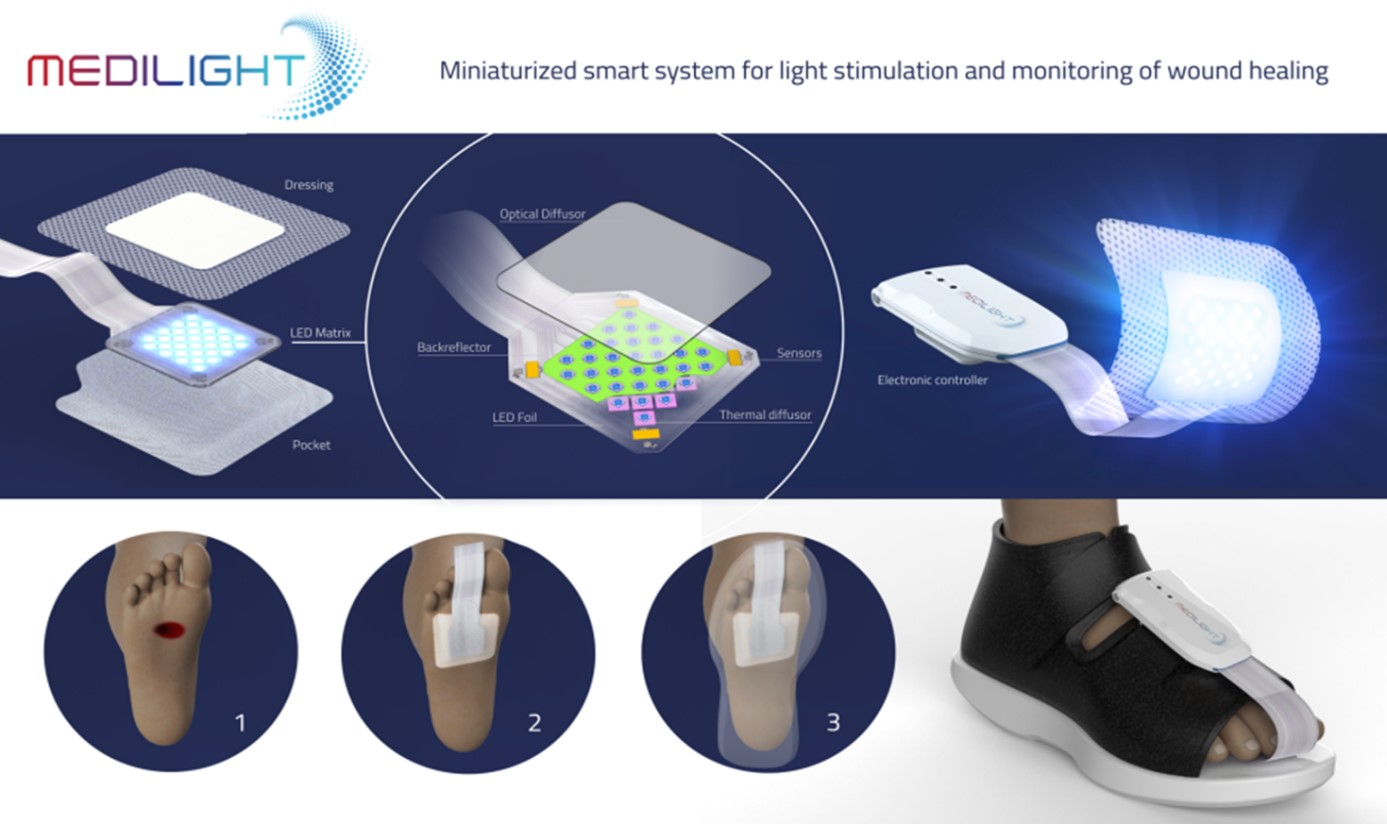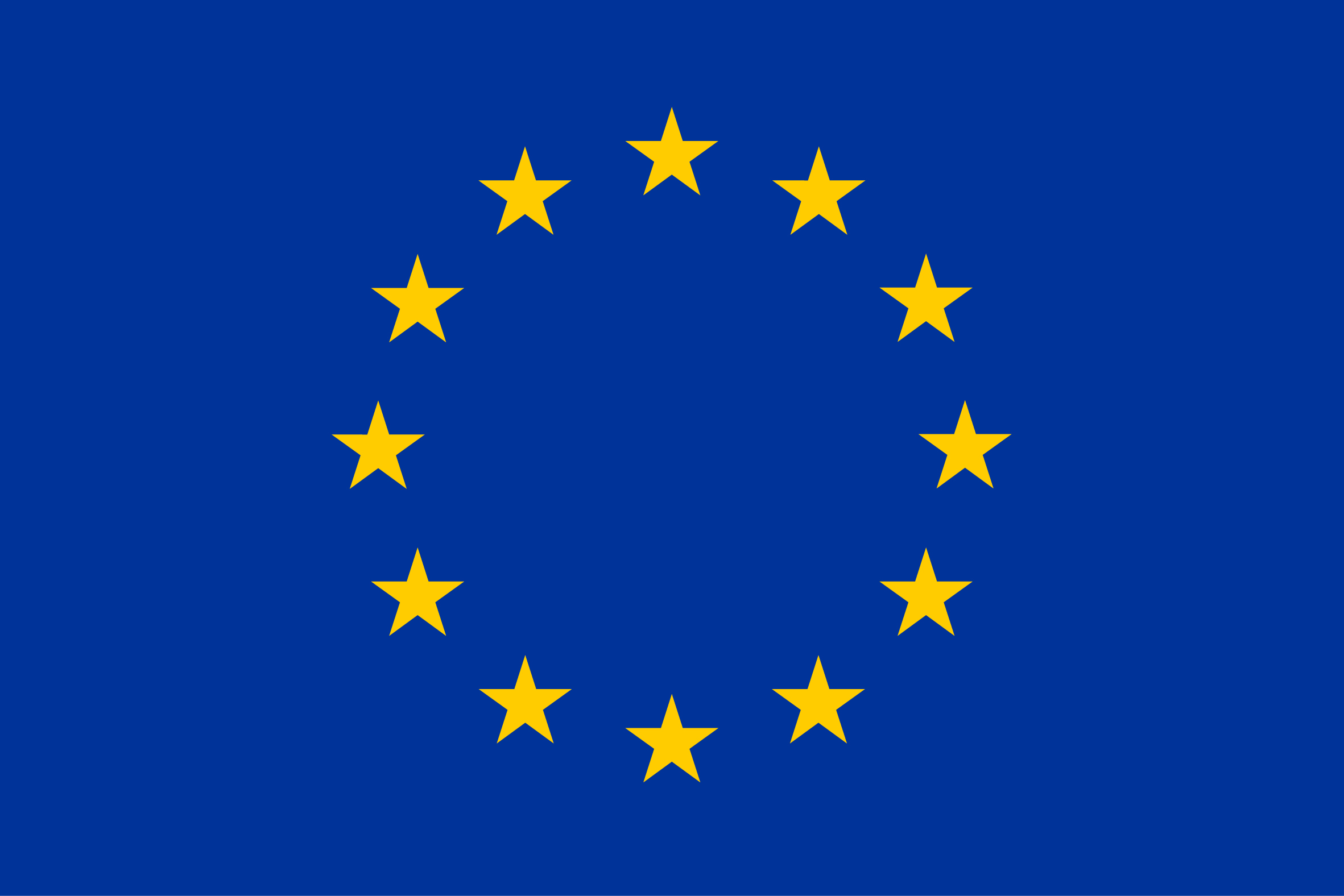Project Medilight
Miniaturized smart system for wound therapy


Chronic wounds which fail to follow the typical healing process or time-frame are notoriously challenging to treat and the disease is frequently recurrent in the same patient. Their burden is significant, affecting over 40 million patients and costing healthcare systems €40 billion annually. The European project MEDILIGHT, in response to this challenge, aspired to develop a medical device which uses proven therapeutic effects of visible light to enhance the self-healing process and to monitor the status and history of the wound during therapy.
Driven by the industrial partner URGO Recherche Innovation et Développement, seven partners have worked together within the H2020 EU-funded MEDILIGHT project to translate the technology behind light stimulation treatments delivered in hospitals into a smart wearable system for the personalized light treatment of chronic wounds.
The MEDILIGHT system developed consists of two parts:
- The first part is a disposable wound dressing with a thin and flexible illumination system and integrated sensors for the monitoring of temperature and blood oxygenation at the wound.
- The second part is a small non-disposable electronic module for the controlling, data acquisition and wireless communication.
Personalization of the treatment is ensured by the MEDILIGHT sensory system, which provides continuous ‘mapping’ of the skin temperature as well as a mapping of the blood oxygenation level around the wound area. This gives vital feedback to the operator via a host application running on an smart device, such as a smartphone or tablet.
Blue light for wound healing
The attention of the MEDILIGHT consortium was focused on blue light's ability to provide anti-bacterial effects and to accelerate the wound healing process. The proliferative and anti-proliferative effects of different light schedules have been tested in-vitro and in-vivo. The proliferative effect of blue light, which has been proven through in-vitro studies, has already been protected with a patent. Also in-vitro studies treating different bacterial strains with blue light revealed bacteriostatic and even bactericidal effects. An impact of the chosen irradiation schedule has been successfuly tested on the skin of healthy and diabetic rats.
Project coordinator: Dr. Dionysios Manessis, Technische Universität Berlin (TUB)
Project website: http://www.medilight-project.eu
Contact: Martina Urbankova, AMIRES (Email: urbankova@amires.eu)
Last modified:
 Fraunhofer Institute for Reliability and Microintegration IZM
Fraunhofer Institute for Reliability and Microintegration IZM